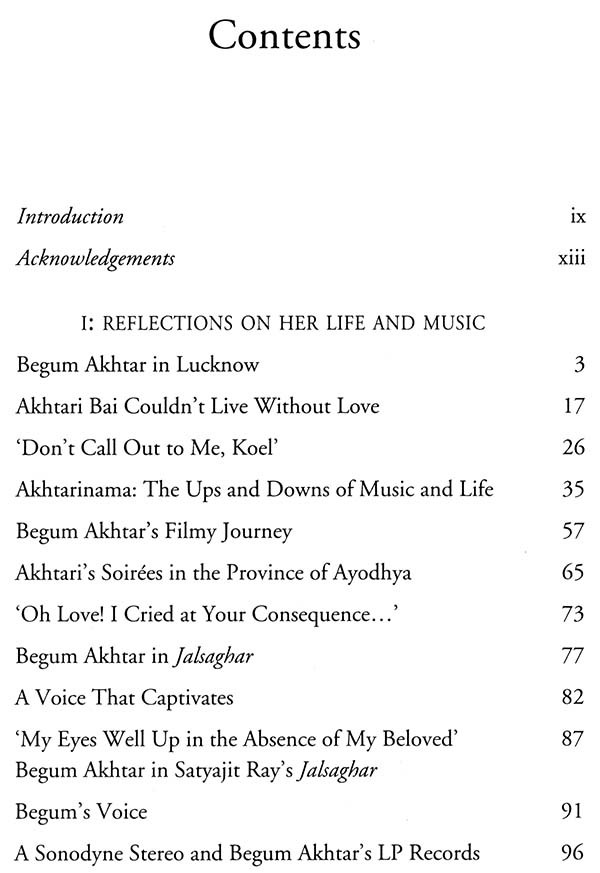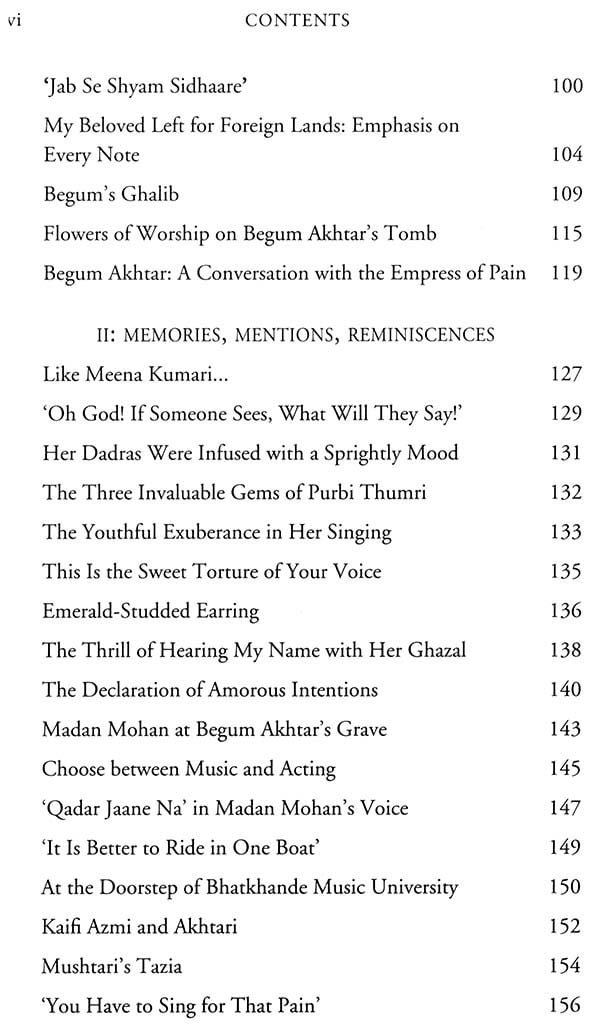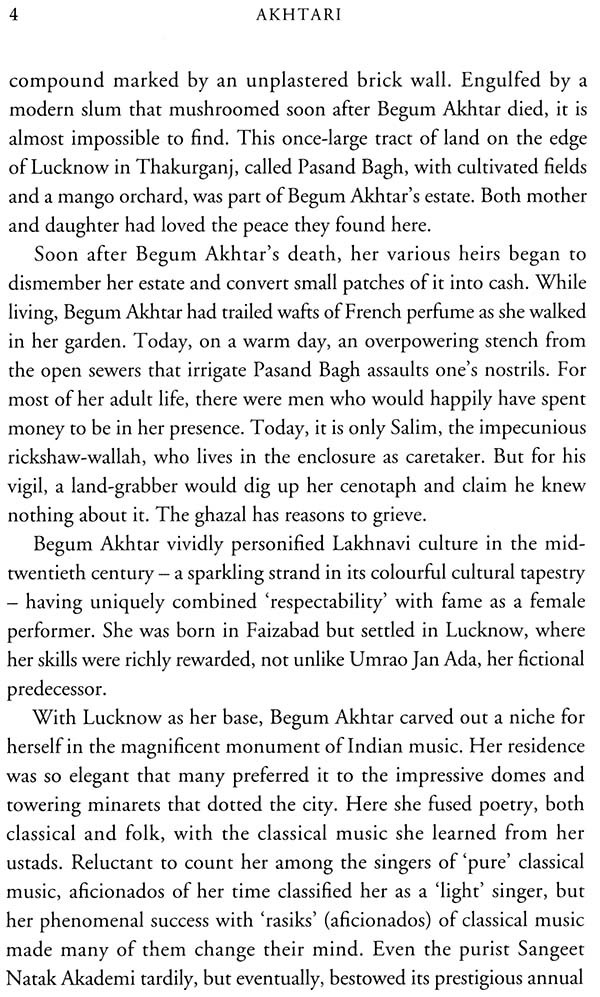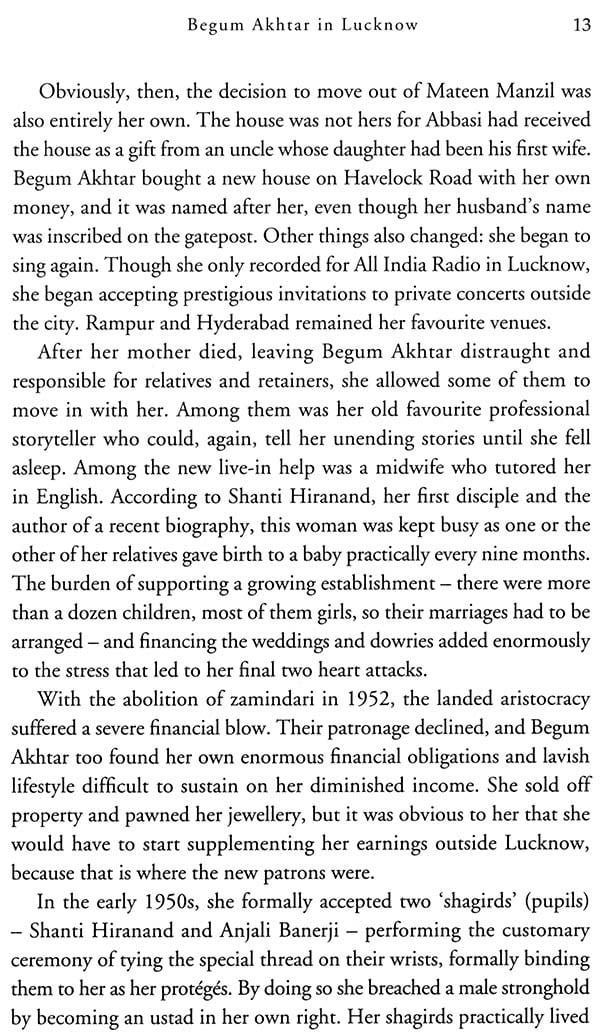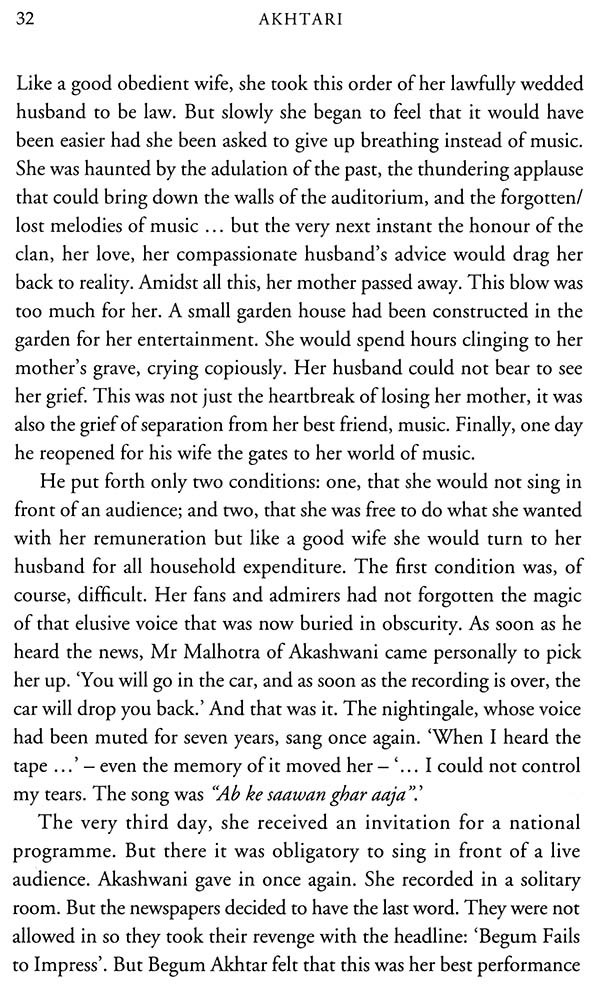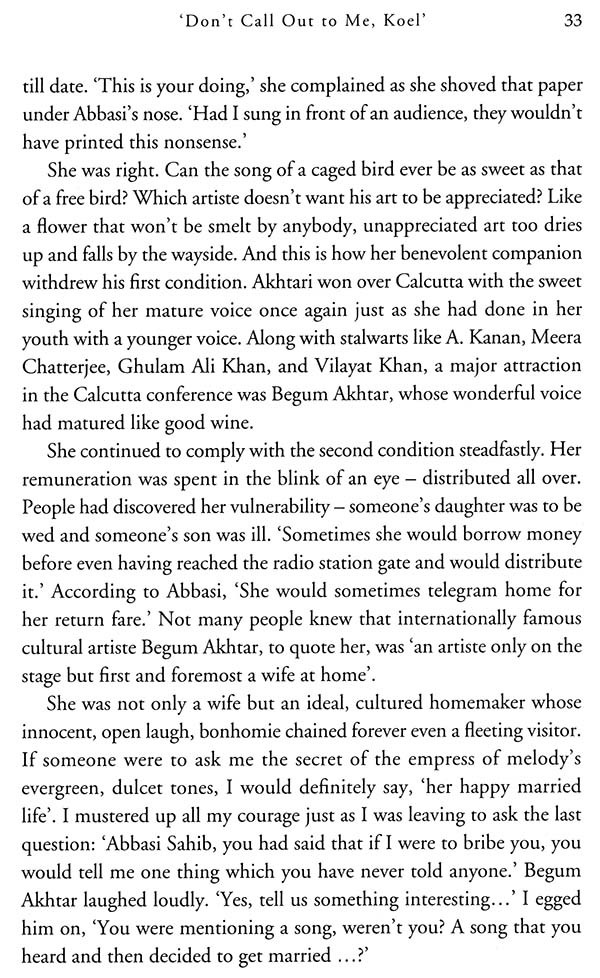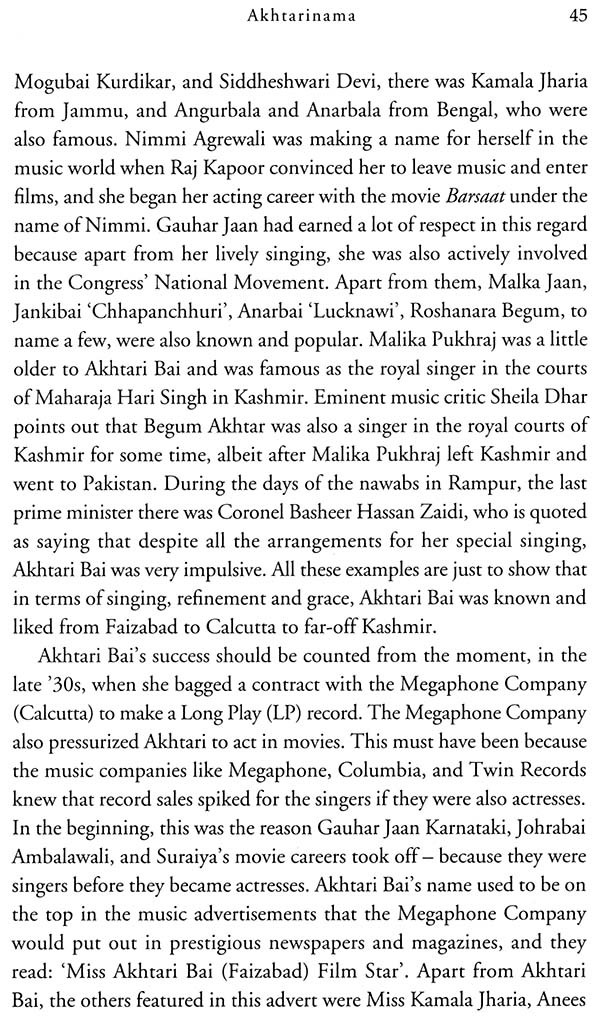
Akhtari- The Life And Music Of Begum Akhtar
Book Specification
| Item Code: | AZA686 |
| Author: | Yatindra Mishra |
| Publisher: | HarperCollins Publishers India |
| Language: | English |
| Edition: | 2021 |
| ISBN: | 9789354224423 |
| Pages: | 255 |
| Cover: | HARDCOVER |
| Other Details | 9.5 x 6.5 Inches |
| Weight | 430 gm |
Book Description
AKHTARI BAI FAIZABADI, or Begum Akhtar as she was better known, was a legend even during her own lifetime, and one of the last great singers from the tawaif community.
Akhtari documents her eventful life and her music through essays and reminiscences by some of her closest friends and associates, and by people who knew her work deeply - such as Bismillah Khan, Lata Mangeshkar and Shubha Mudgal, among others. The volume also includes a long conversation between Acharya Kailash Chandra Dev Brihaspati and Begum Akhtar, and interviews with her disciples Shanti Hiranand and Rita Ganguly. A bestseller in the original Hindi - and now available in English for the first time - this is a book to treasure for all of Begum Akhtar's fans and lovers of music.
YATINDRA MISHRA is a poet, editor, and scholar of music and cinema. He is the author of Girija (2001), Devpriya (2007) and Sur Ki Baradari (2009) about the life and work of thumri singer Girija Devi, dancer Sonal Mansingh, and shehnai maestro Ustad Bismillah Khan respectively. He has also published an acclaimed book on playback singer Lata Mangeshkar, based on a series of interviews spanning a period of seven years, titled Lata: Sur-Gatha (2016) which won numerous awards including the National Film Award for Best Book on Cinema.
MANEESHA TANEJA teaches Spanish at the University of Delhi and translates between Spanish, English and Hindi. Her noteworthy translations include Gabriel Garcia Marquez's One Hundred Years of Solitude, Nadine Gordimer's collection of short stories, and Pablo Neruda's memoirs into Hindi. Her recent translation of Amitav Ghosh's Gun Island has received much critical acclaim.
I have wanted to edit Akhtari ever since I grew old enough to understand the stories I heard about Akhtari Bai Faizabadi's relationship with our family. Listening to the legends about her personality, the way she spoke, her conduct and dressing, her way of life, her obsession with courtesy and respect, and her unsurpassable talent kindled in me an inexplicable idolizing passion for her. I have been so crazy about music that apart from classical music and semi-classical music, I have always looked for hidden gems in folk and cinema music too. My paternal grandmother, the late Rajkumari Vimla Devi, was equivalent to a music society all by herself, having been not only a singer but also accomplished in playing many uncommon instruments. Growing up in such an environment, I have always tried to gain a deeper understanding of who Begum Akhtar was, from the perspective that she was a unique personality from Awadh whose music made its mark in its own special way.
Born to Mushtaribai, a famous singer of yore, Begum Akhtar's (1914-1974) maiden name was Akhtari Bai Faizabadi. After her marriage to Ishtiaq Ahmed Abbasi, from the family of the Nawab of Kakori, she came to be known as Begum Akhtar. It is of historical importance that Begum Akhtar was accomplished in all forms of semi-classical music, be it thumri, chaiti, dadra, kajri, baramasa, or hori. She learnt music through and with various gharanas, the prominent amongst them being Ustad Abdul Wahid Khan (Kirana), Ustad Ramzan Khan (Lucknow), and Ustad Barkat Ali Khan (Patiala). Begum Akhtar attained unparalleled success with her lilting voice, and the unique way of singing in a fast tempo. Her voice was so imbued with pathos and rhythm that at one time the pain in her voice echoed the pain of every listener. Anyone who had suffered heartbreak and betrayal in life found refuge in Begum's voice. Until then the `ghazal' was something that was only read — Begum Akhtar gave ghazal an identity and respectability by adding the dimension of singing to it. There came a time when every poet, expert or novice, yearned for Begum Akhtar to sing his creation. And she did. It remains an example as well as a milestone in the history of music. Be it the ghazals of Shakeel Badayuni and Jigar Moradabadi or those of novice poets like Sudarshan Faakir, Begum Akhtar added value to their words with her voice. In fact, Kaifi Azmi had even confessed that he went back to reading and writing ghazals in order to get closer to Begum Akhtar.
**Contents and Sample Pages**
